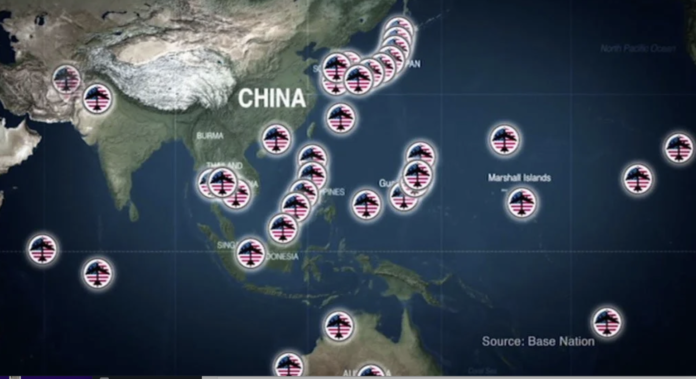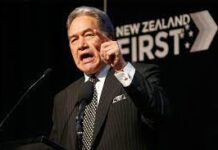Deep sea mining’s potential impact on Pacific security and stability
On 9 July 2023, international regulation of deep-sea mining starts, the United Nations introducing a legal framework for regulation of the industry. An event that expert Guy Standing, writing in the Guardian last week described as “The biggest gold rush in history is about to start in the deep sea – leaving devastation in its wake”.
In 1982, the United Nations passed the United Nations Convention on the Law of the Sea (UNCLOS) that ratified every nation’s right to an exclusive economic zone; and declared that the deep sea was a protected area that is “the common heritage of mankind.” This position banned open ocean mining until a code was developed. The mining code had to contain a formula that equitably shared profits across all countries of the world and limited environmental damage.
The United Nations set up an International Seabed Authority in 1994, that spent the last 28 years trying to reach consensus on how to administer seabed mining. The large number of nations involved and the high environmental risks meant that agreeing on anything was difficult.
In 2021, the situation changed when Nauru in cooperation with a mining company invoked a clause in UCLOS that if a country wishes to mine under the sea the International Seabed Authority has exactly two years to regulate the industry; or mining can happen anyway.
On 9 July 2023, time is up and countries can start applying to the International Seabed Authority for permits to mine undersea. The impact on the Pacific Region could be profound. Environmentally, deep sea mining carries significant risk, however the focus of this brief is the security risk.
The risk to Pacific stability of a deep-sea mining ‘gold rush’ is significant. The Pacific has a many small nations some of which are poorly governed and lack strong government institutions that can engage in a strong, informed manner with large mining companies. Historically, we can see the damage caused by gold and oil rushes in small countries or poorly governed countries. The huge profits often highlight corruption in a nation; that can be used to make exploitation more profitable; at the cost of local people and their environments.
Nauru is a very small nation, exploited first for phosphate, the island was terribly damaged as international companies mined the mineral for fertiliser. The deep holes left by phosphate mining were later filled with rubbish and toxic waste as larger nations looked for places to dump their refuse. Then more recently Nauru became famous as Australia’s dumping ground for unwanted immigrants. Based on this history it is unsurprising that a mining company was able to convince Nauru to support a bid for deep-sea mining. It is a good example of how this situation could evolve in other the Pacific nations.
Already Tonga, Kiribati and Cook Islands are sponsoring mining applications and issuing exploration licences. Mark Brown, Prime Minister of Cook Islands stating that “Exploring this opportunity is not only the right thing to do for our country, it is the responsible thing to do” though he is not yet committing supporting mining.
Another impact of deep-sea mining is that the potential profits escalate existing tensions because mining rights make disputed areas more attractive. Border disputes that were over fishing zones or control of trade choke points now include lucrative mining rights.
The key point is that demand for smart phones, computers, batteries and other tech that requires rare earth minerals is not going to go away. The Pacific is an easy area for large, rich companies to operate because it contains many small or poorly governed nations that are easy to influence. Further, Europe and the United States are both looking for sources of rare earth minerals outside of China. A trend that China will counter by trying to ensure that their companies stake claim to mineral rich areas first, keeping other powers out. Factors that make a destabilising Pacific ‘gold rush’ more likely as both major power blocks compete to control the future exploitation and supply of rare earth minerals.
Papua New Guinea and Bougainville’s independence vote
Papua New Guinea’s management of Bougainville’s independence continues to be an issue. Bougainville is a province of Papua New Guinea that fought a long and bloody war for independence that ended with a peace plan including a plebiscite about independence. The vote was conducted in 2019 and 97.7 percent of Bougainvillian people voted for independence.
Papua New Guinea’s parliament is now charged with responding to the result by voting on the island’s independence. However, the parliament recently decided to change the majority required for a decision from a ‘simple majority;’ or more that 50% of votes to an ‘absolute majority’ or 66% of votes. An action that is strongly protested by Bougainville’s representatives.
This week, Manasseh Makiba, Papua New Guinea’s Minister for Bougainville argued strongly that Papua New Guinea’s parliament has the constitutional right to set the threshold for a mandate. Stating that any constitutional change requires an absolute majority and that previous commitments to the vote requiring a simple majority was a case of officials over stepping their authority.
The constitutional discussion is an interesting example of politics in a high-risk area. Bougainville has significant mineral wealth both on land and in it surrounding waters. The United States and Europe are both keen to identify new sources of rare earth minerals making places like Bougainville economically important. This incentivises Papua New Guinea not to allow independence, creating the potential for future conflict.
NATO summit 11-12 July
NATO’s leader’s summit is taking place in Vilnius on 11-12 July 2023. NATO nations and ‘partners’ including some Pacific nations like Japan, South Korea, Australia and New Zealand will be attending.
Pacific leaders attendance is not un-expected, NATO has stated its intent to engage with Pacific nations and that they are engaging specifically to counter China’s threat to maritime trade and to global security.
NATO’s interest in the Pacific is important, working with NATO provides Pacific nations an opportunity to participate in and influence European security decisions. It also provides opportunities for Pacific nations to benefit from NATO technical support and assistance especially in areas like technology and cyber-security. However, NATO’s projection into the Pacific supporting the United States will be opposed by China.
United State Treasury Secretary Visits China – European Union visit cancelled
Last week, Janet Yellen United States Treasury Secretary arrived in China for a four-day visit that will end on 11 July 2023. The visit is an opportunity for China and the United States to try to bridge the diplomatic gap that is developing as both nations aggressively compete.
In recent years, the key change in both China and the United States foreign policy is prioritising national security ahead of economic concerns and this trip is an opportunity for both parties to maintain trade dialogue. Especially, at a time when United States actions to reduce the flow of tech from the West to China is starting to bite. A situation that Xi Jin Ping complained about in March.
Yellen met with China’s Premier Li Qiang and other officials on Friday and although the visit is relatively low key it provides an opportunity for both nations to discuss key issues. Yellen stating last week that “We seek a healthy economic competition that benefits American workers and firms and to collaborate on global challenges, we will take action to protect our national security when needed, and this trip presents an opportunity to communicate and avoid miscommunication or misunderstanding.”
Meanwhile, a visit planned by the European Foreign Minister, Josep Borrell to discuss trade and China’s position on the Ukraine War was suddenly cancelled by China. An interesting response to last week’s European Union summit at which members supported a proposal to stop importing rare earth minerals essential for building tech devices from China.
This activity demonstrates the aggressive tit-for-tat of current Chinese foreign policy. The European Union being punished for setting a trade policy that China finds disagreeable. However, the key point is that China and the United States continue to maintain dialogue, an important safety mechanism to defuse tensions.
Russian admiral and warships visit China
Last week, Russia continued to demonstrate its defence links with China sending two frigates the Gromkiy and the Soversheinny to Shanghai on a visit. This is the Russian Pacific Fleet’s first port visit since the start of the COVID 19 pandemic.
The Russian ships passed near Taiwan enroute and will be in China until 11 July 2023, exercising with Chinese warships including sailing close to Okinawa.
This visit follows a recent visit by Admiral Nikolai Yevmenov, Russia’s senior naval officer who met with China’s Defence Minister Li Shangfu. Both visits underlining the developing Sino-Russian defence relationship that has grown stronger as Russia is increasingly isolated by the international community.
The impact of this relationship on Pacific security is hard to define, Russia’s naval power in the region is very limited. The risk lies in the nation’s desire to remain relevant and continue to demonstrate its power, that if backed by China could create tension in some areas of the North Pacific.
Ben Morgan is a bored Gen Xer and TDBs military blogger





What I can’t get over is the US and NATO’s control over Ukraine that prevents any ceasefire and the start of dialogue with Russia unless Russia first withdraws from all Ukrainian territory. US and NATO know this is an impossible pre-condition and no ceasefire in history has ever had such a ridiculous requirement. Negotiation must start somewhere and an immediate ceasefire is the best way to start.
Now the negotiations might not ultimately succeed and break down, but to refuse to even try shows that the West does not care how many Ukrainian lives are lost. We now know that Ukraine and Russia had an actual agreement largely finalised by end of March 2022 but then the clown Boris Johnson was dispatched to visit Zelensky and tell him unequivocally that the West did not support the end of hostilities. I’m sorry but in this regard the West are indisputably the bad guys.
Yes. Crossing the border with an invading army and murdering Ukrainian children was a good guy move, just like the invasion of Iraq.
I didn’t say that and of course the most recent action in Feb 2022 was the illegal invasion by Russia. But that didn’t come out of nowhere, the actions preceding that include:
– from 2014 to 2021 the build up of the Ukrainian army by NATO and Ukrainian internal war between Kiev in the West and Russian speakers in the East, failure to observe the Minsk agreements which now look like they were just an attempt to buy time for Ukraine military build up
– in 2014 the US influenced Maidan Coup in Ukraine – the US’s role here is really beyond dispute (Victoria Nuland) with snipers shooting only from buildings controlled by the protesters
– 1990 to 2010 assurances given by the West to Russia that Nato would not expand eastwards, it did
– 1990’s break up of Soviet Union, privatisations, constitution and banking reforms overseen by US with terrible declines in living standards and life expectancy for Russians – hence Putin in power from 2000 as a Russian Nationalist at least ensured that his friends amongst the Russian elites benefitted from the privatisations rather than US elites. This is what annoyed the US – they missed out on plundering Russia and now they want to finish the job.
Nevertheless the immediate priority and best next step has to be to get a ceasefire and there is no disputing that it is the US & NATO that is preventing that with terrible losses for the Ukrainians and Russians.
Russia says it will pull out of the deal that protected free passage for grain shipments leaving from Ukraine.
Russia says there is a threat to commercial shipping from floating mines in the Black sea. Russia accuses Ukraine of sowing these mines. Ukraine accuses Russia of sowing these mines.
From RT:
https://www.rt.com/russia/579718-russia-mine-threat-black-sea/
14 Jul, 2023 18:10
Home Russia & FSU
Russia warns of ‘mine threat’ in Black Sea
It goes without saying, that when a grain ship carrying a shipment of grain from Ukraine strikes one of these mines, Bob and all the other anonymous pro-war trolls, will immediately strike up a chorus, that Ukraine sunk their own grain shipment in a false flag attack to make Russia look bad. Come on Bob; Really?